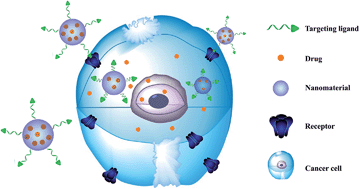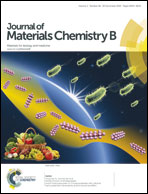Biomolecules-conjugated nanomaterials for targeted cancer therapy
Abstract
Biomolecules perform vital functions in biology. These functional biomolecules with diverse modifications hold great promise for further applications in bioanalysis and cancer therapy. However, these functional biomolecules face challenges, especially in the field of drug delivery for cancer therapy. For example, functional biomolecules are typically unstable when taken up by cells, as they are easily digested by enzymes. To address this obstacle, nanomaterials have been employed as drug carriers or vehicles, which are powerful nanoplatforms for imaging and cancer treatment. Multifunctionality of these nanoplatforms offers great advantages over conventional reagents, including targeting to a diseased site to minimize systemic toxicity, and the ability to solubilize hydrophobic or labile drugs to improved pharmacokinetics. In this review, we summarize typical functional biomolecule-conjugated nanomaterials for targeting drug delivery. Under the appropriate conditions, targeted drug delivery can be achieved from a high density of biomolecules that are bound to the surface of nanomaterials, resulting in a high affinity for the targets. The high density of biomolecules then leads to a high local concentration, being able to prevent degradation by enzymes. Furthermore, biomolecule–nanomaterial conjugates have been identified to enter cells more easily than free biomolecules, and controllable drug release can then be obtained by a response to a stimulus, such as redox, pH, light, thermal, enzyme-trigged strategies. Now and in the future, with the development of artificial biomolecules as well as nanomaterials, targeted drug delivery based on elegant biomolecule–nanomaterial conjugation approaches is expected to achieve great versatility, additional functions, and further advances.

- This article is part of the themed collection: 2014 Journal of Materials Chemistry B Hot Articles

 Please wait while we load your content...
Please wait while we load your content...